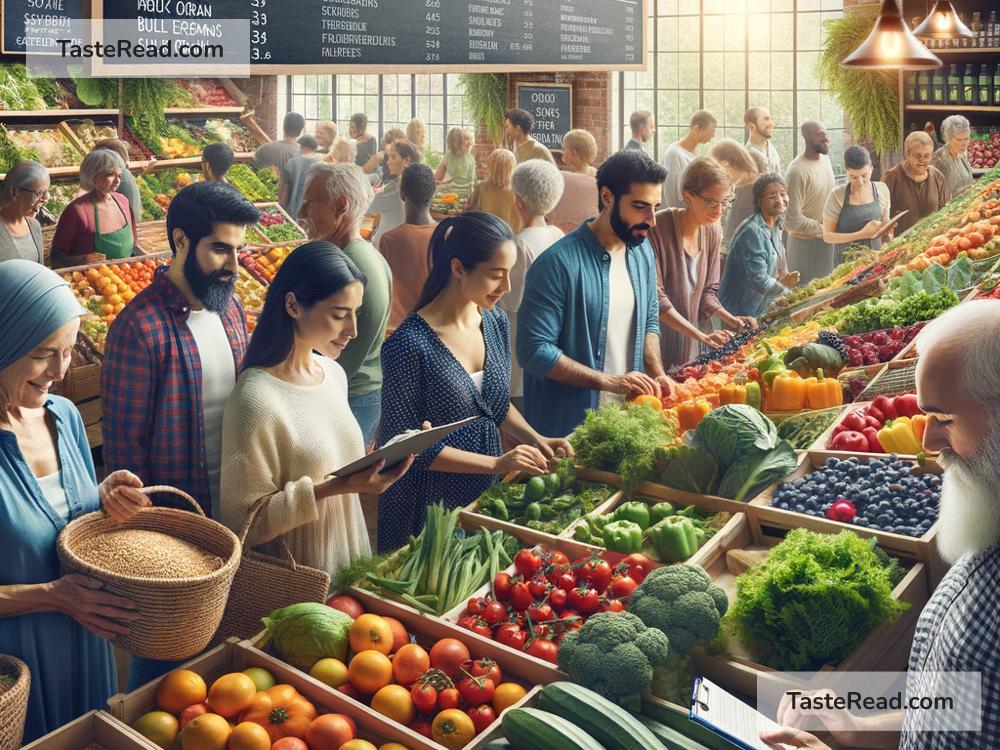Discovering How Food Co-Ops Champion Sustainable Sourcing
In today’s world, where the alarm bells of climate change and environmental degradation ring louder each day, every small action we take toward sustainability counts, particularly in how we choose to shop and eat. This is where food co-ops come into play, showcasing how collective action and community-centered business models are not only possible but vital in steering us toward a more sustainable future.
What Exactly Are Food Co-Ops?
Imagine walking into a grocery store where you’re not just a customer but a part-owner. That’s the essence of a food co-op. Food co-ops are grocery stores owned and democratically controlled by the members who shop there. Unlike conventional supermarkets prioritizing profits, food co-ops focus on serving their members’ and community’s best interests. This means they often prioritize stocking local, organic, and sustainably sourced products.
The Heart of Sustainable Sourcing
Sustainable sourcing is about choosing products that are produced in ways that do the least harm—or ideally, do some good—to the planet and people involved in making them. This includes considering the environmental impact, the welfare of workers, and the long-term availability of the resources used.
Food co-ops are natural leaders in this realm. Since they answer to member-owners rather than distant shareholders, they can make principled decisions about what they sell. They often have rigorous standards for the products on their shelves, ensuring they’re not just tasty but also ethically produced and eco-friendly.
Why Food Co-Ops Are Champions of Sustainable Sourcing
1. They Prioritize Local Suppliers
Food co-ops make it a point to source from nearby farms and producers. This approach supports local economies, reduces emissions from transportation, and keeps the community connected with its food sources. It also means fresher, more flavorful produce for your table.
2. They Support Organic and Eco-Friendly Products
Organic farming practices are kinder to the earth, avoiding harmful pesticides and promoting biodiversity. Food co-ops were among the first retailers to embrace organic products. Today, they continue to champion eco-friendly options, making it easier for consumers to make choices good for their bodies and the planet.
3. They Foster Direct Relationships with Producers
Food co-ops often form direct partnerships with farmers and producers, ensuring they get a fair price for their goods. This direct line not only improves the livelihoods of producers but also gives co-ops better insight into the production practices of the products they sell, ensuring they meet their sustainability criteria.
4. They Educate Their Members and Communities
Co-ops do more than just sell sustainable products; they actively educate their members and communities about the importance of sustainable living. Through workshops, events, and in-store information, they help spread the word about eco-friendly practices, making sustainability a shared community goal.
The Bigger Picture
The impact of choosing a food co-op extends beyond the immediate benefits of fresher food and a cleaner conscience. By prioritizing sustainable sourcing, co-ops play a critical role in pushing the entire food industry toward more responsible practices. They prove that business success does not have to come at the expense of the planet or human well-being.
Furthermore, food co-ops demonstrate the power of collective action. In a world where issues like climate change can feel overwhelming, becoming a part of a co-op is a tangible way to take action. It’s about voting with your dollars for a world where sustenance does not come at the cost of sustainability.
A Call to Action
Joining a food co-op is a significant first step toward becoming a more conscious consumer, but it shouldn’t stop there. We can all take further steps in our daily lives to advance sustainability. This can range from reducing waste at home, choosing public transportation, or even starting a conversation with friends and family about the importance of sustainable sourcing.
In the grand scheme of things, every small action counts. As we continue to face the growing challenges of environmental degradation, the principles championed by food co-ops—community control, sustainable sourcing, and education—offer a blueprint for not just surviving but thriving as a planet.
In conclusion, food co-ops are not just stores; they’re community hubs that foster a deeper connection between people and their food sources. They show us that sustainability isn’t just a buzzword but a viable, necessary approach to consumption in our everyday lives. By supporting these co-operative ventures, we can all contribute to a more sustainable, equitable, and healthy world.


